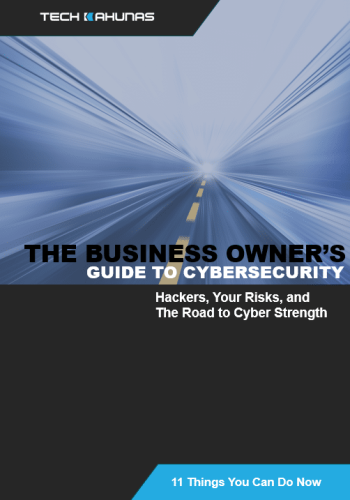Thorough cybersecurity is indispensable in safeguarding biotech innovation, given the myriad of cyber threats facing the industry. The reliance on interconnected systems increases vulnerability to data breaches, ransomware, and unauthorized access, threatening sensitive research and intellectual property. A multi-layered security approach, incorporating secure communication, encryption, and blockchain, is essential to mitigate these risks. Robust protocols for data privacy and compliance guarantee adherence to regulations like GDPR and HIPAA. Continuous employee training and a security-first culture enhance threat recognition. Investment in cutting-edge technologies like AI-driven solutions and quantum encryption fortifies defenses, maintaining competitive advantage while preserving data integrity. Discover more strategies and insights enabling biotech’s secure future.
Key Takeaways
- Comprehensive cybersecurity prevents data breaches, protecting sensitive research and intellectual property vital for biotech innovation.
- Cyber threats can disrupt critical research processes, leading to financial losses and delays in biotech advancements.
- Regulatory compliance in data protection is essential to avoid penalties and maintain stakeholder trust in the biotech sector.
- A cybersecurity-first culture promotes awareness, enhancing detection and mitigation of cyber threats across biotech organizations.
- Investment in advanced cybersecurity technologies ensures robust protection against evolving threats, maintaining a competitive edge in the biotech industry.
Understanding Biotech’s Cyber Vulnerabilities
Biotech organizations increasingly face complex cyber threats due to their reliance on interconnected systems and sensitive data. The biotech infrastructure, encompassing research data, intellectual property, and patient information, is particularly vulnerable to cyberattacks.
The evolving threat landscape includes risks such as data breaches, ransomware, and unauthorized data access, which can compromise data integrity and operational continuity. Insider threats, whether malicious or inadvertent, add another layer of complexity, requiring stringent access controls and monitoring.
The supply chain also presents significant vulnerabilities, as third-party vendors may inadvertently introduce security risks. To address these challenges, biotech companies must conduct regular security audits and thorough risk assessments. These measures help identify and mitigate potential weaknesses within their systems.
Additionally, establishing robust incident response protocols guarantees swift action in the event of a security breach.
Training programs are essential to enhance employee awareness and foster a culture of cybersecurity vigilance. By investing in continuous education and awareness initiatives, organizations can reduce the likelihood of human error.
The Impact of Cyber Threats
The relentless evolution of cyber threats poses significant challenges to the biotech sector, impacting not only the security of sensitive data but also the industry’s overall operational efficacy.
Cyber attack scenarios are becoming increasingly sophisticated, requiring rigorous threat intelligence analysis to preemptively identify and mitigate risks. The implications of ransomware can halt critical research and development processes, leading to substantial financial and reputational damage.
Data breach consequences extend beyond immediate data loss, often resulting in regulatory penalties and loss of stakeholder trust. Phishing awareness training is essential, as these attacks can serve as entry points for more extensive breaches.
Insider threat prevention also demands attention, as internal actors may inadvertently or maliciously compromise data integrity. Supply chain vulnerabilities further exacerbate the risk landscape, with third-party vendors potentially introducing unanticipated security gaps.
Consequently, there is an escalating demand for a cybersecurity workforce skilled in maneuvering these complexities. Addressing these threats requires a multifaceted approach, combining advanced technology, thorough employee training, and robust policy frameworks.
As the biotech industry continues to innovate, its ability to safeguard intellectual property and sensitive data against cyber threats is paramount to maintaining competitive edge and ensuring operational continuity.
Key Cybersecurity Strategies for Biotech
Implementing a robust cybersecurity infrastructure is vital for the biotech industry’s safeguarding of its innovative processes and sensitive data. To effectively counteract cyber threats, key strategies must be employed.
First, adopting a multi-layered security approach is important, encompassing network security, endpoint protection, and encryption protocols. These layers provide an all-encompassing defense, mitigating risks across various entry points.
Biotech partnerships often involve sharing sensitive information, necessitating secure communication channels. Utilizing advanced encryption and secure file transfer protocols guarantees data integrity and confidentiality throughout the collaborative process.
Additionally, regular security audits and risk assessments enable organizations to identify vulnerabilities and refine their security measures accordingly.
The complexity of the biotech supply chain introduces additional cybersecurity challenges. Implementing stringent access controls and identity management systems guarantees that only authorized personnel can access critical systems and data.
Incorporating blockchain technology is another promising solution, providing traceability and immutability in supply chain transactions, thereby enhancing trust and transparency.
Furthermore, fostering a culture of cybersecurity awareness among employees and partners is essential. Regular training sessions and simulations equip stakeholders with the knowledge to recognize and respond to potential threats, reinforcing the industry’s resilience against cyber adversaries.
Protecting Intellectual Property
Safeguarding intellectual property (IP) in the biotech sector is essential, as it represents the cornerstone of competitive advantage and innovation. The sector’s rapid advancement depends heavily on protecting unique discoveries and proprietary methodologies. Patent protection and securing trade secrets are vital components in this endeavor. Effective patent protection guarantees that innovations are legally shielded against unauthorized use, enabling companies to capitalize on their research investments.
However, patents alone are not sufficient. Given the intricate nature of biotech innovations, trade secrets often encompass important information that cannot be patented, such as proprietary processes or formulas.
The risks to IP in biotech are multifaceted, encompassing cyber threats, insider threats, and competitive espionage. To mitigate these risks, organizations must adopt an all-encompassing cybersecurity strategy that includes robust access controls, encrypted communications, and regular vulnerability assessments.
Additionally, fostering a culture of risk awareness among employees is essential. Educating staff on the importance of IP protection and implementing stringent protocols for data access and sharing can greatly reduce the potential for IP theft.
Ensuring Data Privacy and Compliance
Ensuring data privacy and compliance in biotech innovation necessitates a strategic approach to protect sensitive research data while traversing the complex landscape of regulatory requirements.
Organizations must employ robust privacy measures that not only safeguard proprietary information but also adhere to international standards and local legislation.
Protecting Sensitive Research Data
In the domain of biotech innovation, the protection of sensitive research data is paramount, as this data often contains proprietary information and personal health details subject to stringent regulatory compliance. Ensuring such protection requires a multifaceted cybersecurity strategy.
Data encryption is indispensable, providing a layer of defense that secures information both in transit and at rest. Access control mechanisms must be robust, ensuring only authorized personnel can interact with critical datasets. Incident response plans are essential, enabling swift action to mitigate potential breaches.
Conducting thorough risk assessment and threat modeling can identify vulnerabilities and prioritize risks, guiding the development of efficient protective measures. Regular vulnerability scanning should be employed to detect weaknesses that could be exploited by cyber adversaries.
Backup strategies are significant to preventing data loss, ensuring that research can continue even in the event of cyber incidents. Security training for staff reinforces the human element of cybersecurity, emphasizing best practices and awareness.
Utilizing cloud security solutions enables scalable, resilient protection, but must be coupled with rigorous oversight to safeguard sensitive data. A thorough approach, integrating these elements, is indispensable to maintaining the integrity and privacy of biotech research data.
Navigating Regulatory Requirements
Steering through the labyrinth of regulatory requirements in biotech innovation demands an extensive understanding of data privacy laws and compliance mandates. The complex landscape of regulatory frameworks presents significant compliance challenges, necessitating meticulous risk assessments and robust data governance strategies.
To navigate these waters effectively, biotech companies must align with industry standards and adhere to stringent audit processes to meet legal obligations.
Key considerations for ensuring compliance include:
- Regulatory Frameworks: Understanding global and regional regulations is essential. Companies must stay informed about evolving laws such as GDPR, HIPAA, and CCPA to address cross-border data flow and privacy concerns.
- Risk Assessments: Conduct thorough risk assessments to identify vulnerabilities in data handling and storage. This proactive approach aids in mitigating potential breaches and fosters a culture of security awareness.
- Certification Programs: Engage in certification programs like ISO/IEC 27001 to demonstrate commitment to data protection. These certifications not only enhance credibility but also streamline compliance efforts by standardizing security practices.
Implementing Comprehensive Privacy Measures
A cornerstone of safeguarding sensitive information in biotech involves implementing robust privacy measures that assure both data privacy and compliance. Establishing thorough security protocols starts with data encryption and extends to regular privacy audits. These audits guarantee adherence to compliance frameworks that align with industry standards. Risk assessments and threat modeling provide a solid foundation for identifying potential vulnerabilities and implementing appropriate access controls.
User training is pivotal in maintaining data integrity and minimizing human error, a common risk factor in data breaches. Educating personnel on best practices assures that they are equipped to handle sensitive information responsibly. In addition, incident response plans must be in place to swiftly address any security breaches, minimizing potential damage.
Data anonymization techniques additionally protect individual privacy while allowing for valuable data analysis. Employing these methods strengthens the security of sensitive information. By proactively addressing these areas, biotech firms can reduce risks and maintain compliance, safeguarding their innovations.
| Key Component | Description |
|---|---|
| Data Encryption | Secures data in transit and at rest |
| Privacy Audits | Regular evaluations to guarantee compliance |
| User Training | Educates staff on handling sensitive data |
| Incident Response | Plans for swift action in case of a breach |
| Access Controls | Limits data access to authorized personnel only |
Building a Cyber-Resilient Culture
Establishing a cyber-resilient culture within biotech organizations is vital for safeguarding innovation and guaranteeing robust security measures. To achieve this, organizations must prioritize a culture shift that integrates cybersecurity into every aspect of operations. Here are key strategies:
- Employee Training and Awareness Campaigns: Continuous education empowers employees to recognize and mitigate threats. Tailored training sessions and awareness campaigns enhance their ability to respond effectively to potential security incidents.
- Leadership Engagement and Cross-Department Collaboration: Strong leadership commitment is essential for fostering a security-first mindset. Engaging stakeholders across departments guarantees that cybersecurity strategies are aligned with organizational goals and facilitates seamless information sharing.
- Regular Risk Assessments and Security Audits: Conducting thorough risk assessments and security audits identifies vulnerabilities and enables organizations to implement proactive measures. Continuous improvement of these processes helps maintain a resilient security posture.
Effective incident response plans should be developed in collaboration with all departments to guarantee swift action when threats are detected.
Leadership must emphasize the importance of cybersecurity, advocating for a culture where security is everyone’s responsibility. Stakeholder involvement and cross-department collaboration are pivotal in embedding resilience into the organization’s DNA.
Future Trends in Biotech Cybersecurity
As the biotech sector faces increasingly sophisticated cyber threats, AI-driven security solutions and quantum encryption advancements are emerging as pivotal technologies.
AI-enhanced systems can proactively detect and respond to anomalies, providing a robust defense against evolving attack vectors.
Meanwhile, quantum encryption offers unprecedented levels of data protection, ensuring the confidentiality and integrity of sensitive biotech research and intellectual property.
AI-Driven Security Solutions
In the rapidly evolving landscape of biotech innovation, numerous AI-driven security solutions are emerging as pivotal tools for safeguarding sensitive data and proprietary technologies.
These solutions leverage machine learning to enhance threat detection and facilitate automated responses, guaranteeing data integrity and robust incident management. As AI systems become more sophisticated, they are increasingly capable of predictive analytics, allowing for proactive risk assessment and security orchestration.
However, the implementation of these technologies must be guided by AI ethics to prevent misuse and guarantee unbiased operations.
Key components of AI-driven security solutions include:
- Behavioral Analysis: By continuously monitoring user behavior, AI can identify anomalies that signal potential security breaches, enabling quick and effective responses.
- Automated Response Systems: These systems minimize human intervention, providing rapid responses to threats and reducing the risk of prolonged exposure to vulnerabilities.
- Predictive Risk Assessment: AI’s ability to anticipate potential threats based on historical data and trends allows organizations to reinforce their defenses proactively.
Incorporating AI-driven solutions into biotech cybersecurity strategies not only strengthens defenses but also optimizes incident management processes.
Quantum Encryption Advancements
Pioneering advancements in quantum encryption are set to revolutionize biotech cybersecurity by offering unparalleled levels of data protection. As the biotechnology sector increasingly relies on sensitive data, the risk of cyber threats escalates. Quantum cryptography applications, particularly quantum key distribution (QKD), present a formidable solution to these challenges.
QKD leverages the principles of quantum mechanics to create and distribute encryption keys that are theoretically impervious to interception, as any attempt to eavesdrop can be detected instantaneously. This advancement guarantees that communication channels remain secure against even the most sophisticated cyber attacks, including those anticipated from quantum computing.
Quantum cryptography applications extend beyond key distribution, promising robust protection for data integrity and confidentiality. By using quantum states to encode information, even the most advanced data breaches can be thwarted.
As biotech innovators adopt these cutting-edge technologies, they can safeguard intellectual property, sensitive research data, and personal health information from emerging threats. However, the integration of quantum encryption into existing infrastructures demands significant investment and expertise.
Organizations must remain vigilant and proactive, investing in research and development to keep pace with these advancements. In doing so, they can maintain a competitive edge while guaranteeing the security and integrity of their data.
Frequently Asked Questions
How Do Cyber Attacks on Biotech Companies Affect Patient Safety and Public Health?
Cyber attacks on biotech companies compromise data integrity, jeopardize patient confidentiality, disrupt critical research, and erode public trust. These risks necessitate robust cybersecurity measures to safeguard patient safety and public health, ensuring continuity and reliability in healthcare innovations.
What Role Does Employee Training Play in Preventing Cyber Breaches in Biotech?
Employee training is essential in preventing cyber breaches in biotech by enhancing employee awareness. Implementing robust security protocols and continuous education fosters a culture of vigilance, reducing human error and strengthening organizational resilience against cyber threats.
How Can Small Biotech Firms Afford Comprehensive Cybersecurity Measures?
Small biotech firms can implement thorough cybersecurity by adopting cost-effective solutions, such as cloud-based security services and open-source tools. Emphasizing robust risk management strategies guarantees resource allocation is optimized, balancing security needs with financial constraints efficiently.
Are There Specific Regulatory Frameworks Guiding Cybersecurity in Biotech?
Yes, specific regulatory frameworks guide cybersecurity in biotech, emphasizing regulatory compliance and data protection. These frameworks, including GDPR and HIPAA, guarantee technical proficiency, mitigate risks, and provide solution-oriented approaches tailored to the industry’s sensitive data handling needs.
How Can Collaborations With Tech Companies Enhance Biotech Cybersecurity Efforts?
Collaborating with tech companies can enhance biotech cybersecurity by leveraging advanced cloud security, threat intelligence, and data encryption. Effective collaboration models enable robust risk assessments, incident response, software integration, and security audits, ensuring thorough protection against evolving cyber threats.



 Get your CPA firm aquainted with new FTC rules.
Get your CPA firm aquainted with new FTC rules. 




